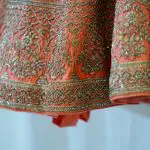As a lover of cozy winter fashion, I was surprised to learn that silk, known for its luxurious appeal, can actually keep you warm when the temperatures drop.
The unique properties of silk not only make it a stylish choice but also an effective insulator against the cold.
But how exactly does silk manage to keep us snug and comfortable in chilly weather? Let's uncover the science behind silk's warmth and explore why it might be the perfect addition to your winter wardrobe.
Table of Contents
Key Takeaways
- Silk traps air to insulate and regulate body temperature effectively.
- Its moisture-wicking property keeps you dry and cozy.
- Silk is lightweight, breathable, and enhances warmth when combined with wool.
- This natural fabric offers versatile warmth for winter and summer wear.
Silk's Thermal Properties
Trapping air within its natural fibers, silk creates an insulating layer that keeps me warm in the chilly winter weather. The unique properties of silk make it an excellent choice for staying cozy when the temperatures drop. By forming air pockets within its fabric, silk effectively traps body heat, providing insulation against the cold. This natural fiber not only keeps me warm but also helps regulate my body temperature, keeping me comfortable in fluctuating environments.
Moreover, silk's ability to wick moisture away from the skin plays a crucial role in maintaining warmth. By drawing sweat and moisture away, silk prevents that clammy feeling often associated with synthetic materials, ensuring that I stay dry and snug. The thermal qualities of silk make it a top contender for winter wear, offering both insulation and breathability. So, when it comes to staying warm and comfortable during the colder months, silk truly shines.
Insulating Qualities of Silk
Wrapped in silk, I can feel a cozy layer of warmth enveloping me during the chilly winter days. Silk's insulating qualities play a significant role in keeping me warm and comfortable:
- Warm Air: Silk creates a layer of warm air next to the skin, providing insulation against the cold.
- Moisture-Wicking Properties: Silk's ability to wick moisture away helps in retaining warmth and keeping me dry.
- Breathable: Despite its warmth, silk is breathable, allowing excess heat to escape while retaining warmth.
- Low Conductivity: The low conductivity of silk ensures that warm air is trapped close to the body, offering effective insulation.
With these features, silk proves to be an excellent choice for staying warm in colder seasons. It not only retains warmth effectively but also ensures that I stay dry and comfortable throughout the day.
Silk Vs Other Fabrics for Warmth
When comparing silk to other fabrics for warmth, one must consider their unique insulating properties and breathability. Wool stands out as a top choice for winter fabrics due to its exceptional insulative properties that trap heat effectively.
In contrast, silk, while not as warm as wool, offers a more breathable option. Silk's natural temperature-regulating qualities make it ideal for maintaining comfort in various conditions. While wool excels in keeping you warm in cold weather, silk provides a lighter alternative that can be more suitable for transitional seasons or environments where breathability is a priority.
The insulating properties of wool fibers make it a preferred choice for those seeking maximum warmth, while silk's breathable nature offers a different kind of comfort. Both fabrics have their strengths, with wool being a powerhouse for insulation and silk offering a balance between warmth and breathability.
How Silk Keeps You Cozy
Silk envelops you in a cozy embrace by harnessing its natural insulating properties through air-trapping fibers. When it comes to staying warm, silk goes beyond expectations, offering a luxurious and comfortable experience.
- Natural Insulation: Silk's natural fibers trap air, creating an insulating layer that keeps you warm even in the coldest temperatures.
- Moisture-Wicking: Silk has the remarkable ability to wick away moisture from your skin, ensuring you stay dry and cozy.
- Breathable Comfort: Unlike thicker fabrics, silk is lightweight and breathable, providing warmth without feeling heavy or bulky.
- Thermal Regulation: The porous nature of silk allows it to regulate temperature, keeping you cozy in winter and cool in summer.
Silk, often combined with wool to enhance warmth, is a top choice for those seeking both comfort and style in their winter wardrobe. Its unique properties make it an excellent option for those looking to stay warm while feeling pampered.
The Science Behind Silk's Warmth
Enveloped in silk's luxurious embrace, one finds not just comfort but a scientifically-backed warmth that defies the chill of winter. Silk's ability to trap air within its fibers creates a natural insulating layer that effectively regulates body temperature. This unique feature sets silk apart from other fabrics like merino wool, making it an ideal choice for winter wear. The structure of silk fibers allows them to retain heat close to the body, ensuring you stay warm even in the coldest of conditions. Additionally, silk's moisture-wicking properties keep you dry and cozy, further enhancing its warmth. The combination of being moisture-wicking and a natural insulator makes silk a versatile option for winter clothing, whether in the form of silk pillowcases, silk underwear, or silk garments. Its breathability adds to its appeal, allowing for comfort without compromising on warmth.
| Features | Benefits |
|---|---|
| Natural insulating layer | Regulates body temperature effectively |
| Moisture-wicking | Keeps you dry and comfortable in cold weather |
| Breathable | Allows for comfort without compromising warmth |
Frequently Asked Questions
Does Silk Make You Hot or Cold?
Silk helps regulate temperature, keeping me comfortable. It insulates by trapping warm air, retains body heat, and wicks away moisture, providing warmth without bulk. Silk adapts to my needs, making it a versatile fabric for staying cozy in any weather.
Is Silk Warmer Than Cotton?
Silk, with its natural insulating properties, traps heat close to my body. It forms air pockets that retain warmth, making it perfect for cold weather. Compared to cotton, silk is a superior insulator, maintaining body temperature in chilly conditions.
What Fabric Keeps You the Warmest?
Silk, with its natural protein fiber and temperature-regulating properties, effectively traps warm air close to my skin, keeping me warm. Its lightweight, breathable nature, combined with moisture-wicking abilities, ensures I stay cozy all day.
What Fabric Is Best for Cold Weather?
Silk is my top choice for cold weather. It's lightweight, traps heat with its air pockets, and keeps me dry. Layering silk properly makes it a cozy and comfortable addition to my winter wardrobe.
- Why Is Red Velvet Not Red? - April 25, 2024
- How Do You Describe Velvet Fabric? - April 25, 2024
- How Strong Is Velvet? - April 25, 2024






